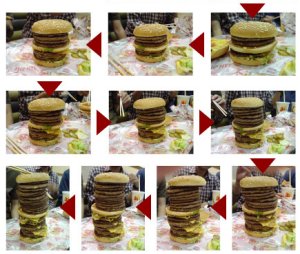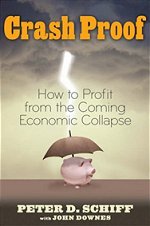Many long-term students of Taiji enjoy improvements in their metabolic and kinesthetic efficiency. They burn fewer calories, and expend less effort, to accomplish the same amount of work, whether that “work” consists of repeating the Taiji forms or any other activity.
When food is scarce and plain, this efficiency is an obvious benefit. For most people living in developed countries today, however, food is abundant and tasty. To a person who has become addicted to eating—as the majority of Americans are, studies show—this hard-earned fruition of Taiji is actually a problem: it makes you fat. (Technically, eating the food makes you fat, but let us ignore that detail, as everyone does.)
Dedicating oneself to longer and more strenuous practice might seem like an intelligent solution. Unfortunately, this is likely to accelerate the efficiency gains, exacerbating the problem in the long run. If we choose to define physical fitness as effort and exertion, then Taiji is a lousy fitness routine.
A comfortable and plausible short-term solution: redefine success as failure, and vice-versa. Prioritize effort expended, rather than work accomplished. Sure, your new Taiji may be less functional, but at least you’ll look good doing it!
The more responsible, but less appealing solution is to start eating within your means: to consume calories in accordance with physical needs, rather than insatiable desires. In the meantime, returning to one’s target weight requires a disciplined starvation diet, in conjunction with regular exercise.
Can we view this scenario as a metaphor for the United States economy? Creditors gorged at the sub-prime mortgage trough, ingesting a fair bit of melamine in the process. Irresponsible lending by them caused the problem, and additional lending to them is proposed as the solution. As the basis for this loan, we are asked to ignore the actual market value of the collateral, and assign a “fair value” based on our troubled bankers’ desires.
Having located a proverbial “bigger fool” to make this loan, we can restore liquidity and trust to the marketplace, by sustaining our otherwise unsustainable real-estate prices. Meanwhile, inflation erodes the savings of those Americans who chose, responsibly, to live within their means, and keeps them out of the homes they could otherwise afford.
Now, I must admit a fundamental ignorance of macroeconomics and international finance…but doesn’t this sound like redefining failure as success?
Hat tips to Scott P. Phillips and Dave Chesser


The problem for me is that my day job involves nothing more than sitting on my butt and moving a mouse around, at least physically. When that fact is combined with your accurate description of TJQ practice above, it means I don’t get adequate amounts of exercise if all I do is TJQ.
I simply need more vigorous forms of exercise to make up for my lack of exercise during the day.
Calories are one consideration, but they aren’t the only one. Other factors are at play, as well.
Taiji done slowly is not the whole of Taiji: that’s one of the big mistakes too. Push hands without force is a pathetic attempt to pretend self-defense.
Taiji has fa-jing striking and lots of visceral twisting and turning. Real Taiji is active and powerful.
I like your comparision to our economy. What if the bail out is economic war; the money to pad the pockets of foreign investors, not US investments. Hmm. It seems then that they’re picking on the proper pathetic fools: Fat American Congress-people. And Bush Co leads this tragedy.
As far as I’m concerned, and I love mma, etc., no qigong = no neijia. Otherwise, taiji is at worst, hand waving, and at best a moving meditation and a bit of calisthenics. Not particularly impressive exercise compared to the burpees Dave referenced on his blog. Still, it’s claimed that qigong will help regulate metabolism, etc. and a thousand other things – but it’s hard to say how far to take that (even buying some of it), since if you overeat, you’re still going to get fat! No big fat taiji master as my future, thank you. A build like Sun Lutang’s is ok with me.
“They burn fewer calories, and expend less effort, to accomplish the same amount of work, whether that “work” consists of repeating the Taiji forms or any other activity.”
I did not realize this. Interesting. I guess I am extremely successful then. LOL… Seriously – there are worse things than being fat – as long as one is healthy. 😀
I like your take on it, but the comments show just how difficult the idea of taijiquan is to grasp.
America is over eating oil. When the price of oil went up, there was a 2% increase in loan defaults and a 1% decrease in new housing construction —-all in suburbs more than 1.5 hours from a city. Sure everything was leveraged, but if the price of oil went down and appeared to be stable, the economy would recover very quickly.
The best thing for market recovery would be an international commitment to energy efficiency–call it Taiji Economics.
A friendly government in Iran wouldn’t hurt either.
I think it’s also worth noting that the rest of the world economy seem totally reliant on America to drive it and keep it stable.
Steven Smith,
Warren Buffett did refer to this event as “an economic Pearl Harbor”. And on the subject of bailout money going overseas:
Scott,
Would lowering the price of oil restore trust in the system?
To get back to your actual post content rather than taijiquan, “but doesn’t this sound like redefining failure as success?”
Yes, have to agree 100%. Instead of “eating within my means”, what if I buy a 2 million dollar house that I can’t afford? Now I go bankrupt. Should the government bail me out? What if I bet on stocks and won a lot but when I lose, should they bail me out? That does seem totally ludicrous. I don’t have a great grasp of it, either, but a few moves seemed sensible:
1. the government let Lehman fall – these guys are fat cats who made billions then lost, as in my above rhetorical questions, no one need help them.
2. the government bailed out AIG – there was too much “systemic” (chain reaction) risk to ordinary people such as us here.
3. the FDIC and others stepped in to try to get buyers for WaMu and Wachovia. Obviously runs on those banks would hurt ordinary people and other parts of the economy. Good move.
Beyond that, there is so much politics to follow, it’s hard to assess…
Neijia,
People are calling it a bail out. But it is not about bail outs.
The financial system invents new ways to make money, to bend money, to twist money. That’s what it does. And that’s a good thing. Often these new inventions work, like credit cards. There seems to be a growing concensus that many of the money products invented over the last 20 years don’t work, for instance, variable rate loans (which go up/down with inflation).
Historically, financial instability made people really conservative. The reasonable fear that the whole market would collapse made people reluctant to invest/loan. But even if you kept your money as cash, it’s value could crash, so conservative strategies aren’t actually better for the individual, and they certainly aren’t better for the world market.
If when people make money, they can turn around and invest it, it helps other people make money too.
The purpose of the “government bailout” and all financial regulatory action is to stablize the market so that people who have money will give it to other people so that they can use it to make more money. The “bail out” is just a tool calculated to have a stabilizing effect. (I’m skeptical of the assumption that it will actually cost the government anything in the long run, since, among other things, an improvement in the economy will mean more tax revenue.)
Chris, the simple answer is yes. Cheap oil keeps costs down; which is the definition of industrial commerce.
Industrial commerce has been so successful that the world has more money than it/we know what to do with. It has to go back into the markets, where else could it go? Much riskier markets have recovered.
The Daodejing says:
“Trust the trustworthy, but also trust the untrustworthy, by this the nature of trust is understood.”
Thanks, I understand money needs to be moving and changing hands, but it’s not clear who gets what amount of money as part of the “rescue”.
Great article.
I really like the discussion on the financial crisis, but I would like to see a future article that further explores how to loose weight while doing the internal martial arts.
Josh, I will consider that…though it sounds like a request for tips on eating soup with a fork. (To which my answer is: why not use a spoon instead?)
Do taichi quan can do realy work for weight loss!